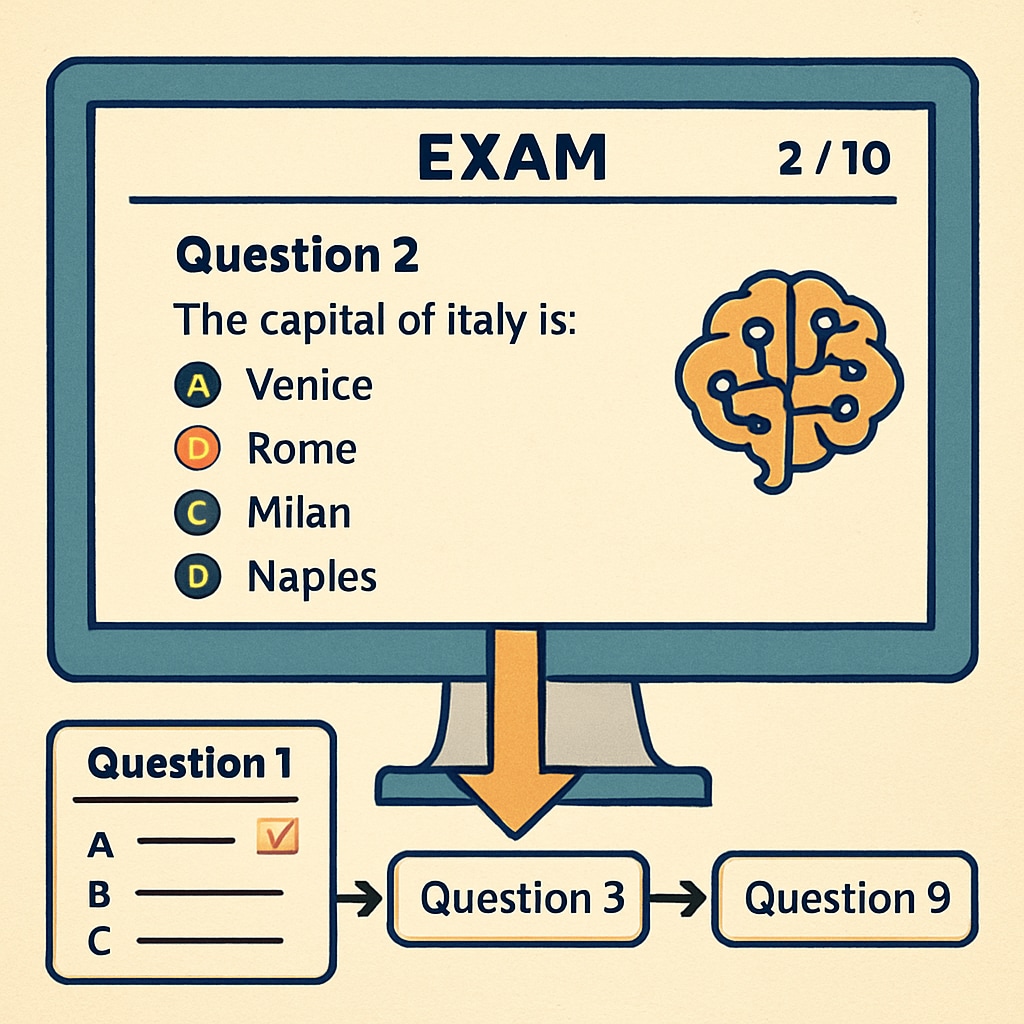The rapid development of artificial intelligence (AI) is revolutionizing various industries, including education. As AI becomes increasingly integrated into classrooms, traditional competitive exams in the K12 system face unprecedented challenges. The question arises: are these exams equipped to evaluate talent effectively in this new era? This article explores the necessity of redesigning competitive exams in light of AI advancements and proposes innovative pathways to promote genuine skill development and uncover diverse talents.
Why Traditional Competitive Exams Are Falling Short
Traditional competitive exams, often focused on rote memorization and standardized testing, were designed for an era that emphasized uniformity. However, in the age of AI, these methods are proving inadequate. AI tools like ChatGPT and automated problem-solving systems have made it easier for students to circumvent traditional methods of assessment. As a result, the authenticity of exam results and their ability to measure true understanding are increasingly questioned.
Furthermore, these exams often fail to account for the diverse range of intelligence and skills that students possess. While they excel in testing logical reasoning and memory retention, they neglect creativity, emotional intelligence, and collaborative problem-solving—all critical skills for the future workforce.

The Role of AI in Redesigning Competitive Exams
AI offers a unique opportunity to revolutionize competitive exams and make them more adaptive, inclusive, and skill-focused. For example, AI-driven assessments can analyze not just the final answer but also the process students use to arrive at it. This ensures a deeper evaluation of critical thinking and problem-solving abilities.
In addition, AI can personalize exams to suit individual student strengths and weaknesses. Adaptive testing models, powered by machine learning algorithms, can dynamically adjust the difficulty of questions based on a student’s performance during the exam. This helps identify areas where students excel and where they need improvement.
Moreover, AI systems can facilitate multi-modal evaluations, encompassing written, oral, and practical assessments. This approach ensures a more comprehensive understanding of student capabilities.

Proposed Reforms for K12 Competitive Exams
Given the limitations of traditional exams and the promise offered by AI, several reforms can be considered:
- Skill-Based Evaluation: Shift the focus from memorization to skills such as critical thinking, creativity, collaboration, and emotional intelligence.
- Project-Oriented Assessments: Incorporate long-term projects and case studies to evaluate practical application and innovation.
- Real-Time Feedback: Use AI tools to provide instant feedback, helping students understand their strengths and areas for improvement.
- Ethical AI Integration: Ensure AI systems used in exams are transparent and unbiased, safeguarding the integrity of evaluations.
These reforms aim to create an education system that not only tests knowledge but also nurtures a diverse range of skills and talents.
Challenges and Ethical Considerations
While AI offers immense potential, it also brings challenges. One major concern is data privacy. AI-driven exams require significant personal data to offer personalized evaluations, raising questions about how this data is stored and used. Additionally, there’s the issue of accessibility—will all students, regardless of socioeconomic background, have access to AI-enabled tools?
Ethical considerations must also be addressed. For instance, how do we ensure AI systems do not unintentionally favor certain demographics or learning styles? Transparency in AI algorithms and equitable access to technology will be crucial to overcoming these hurdles.
Despite these challenges, the benefits of AI-driven exams far outweigh the drawbacks, provided ethical frameworks and accessibility guidelines are firmly in place.
Conclusion: Embracing the Future
The integration of artificial intelligence into education is inevitable, and competitive exams must evolve to keep pace. By embracing AI-driven reforms, the K12 education system can move beyond outdated methods and foster a generation of students equipped with the skills needed to thrive in the modern world. These changes will not only ensure fair and effective talent selection but also celebrate the diverse potential of every student.
As educators and policymakers, we must seize this opportunity to redefine the future of competitive exams, ensuring they serve as a true reflection of individual capabilities rather than a one-size-fits-all measure of success.
For further insights into AI and education, visit the Artificial Intelligence page on Wikipedia or explore Britannica’s AI resources.


